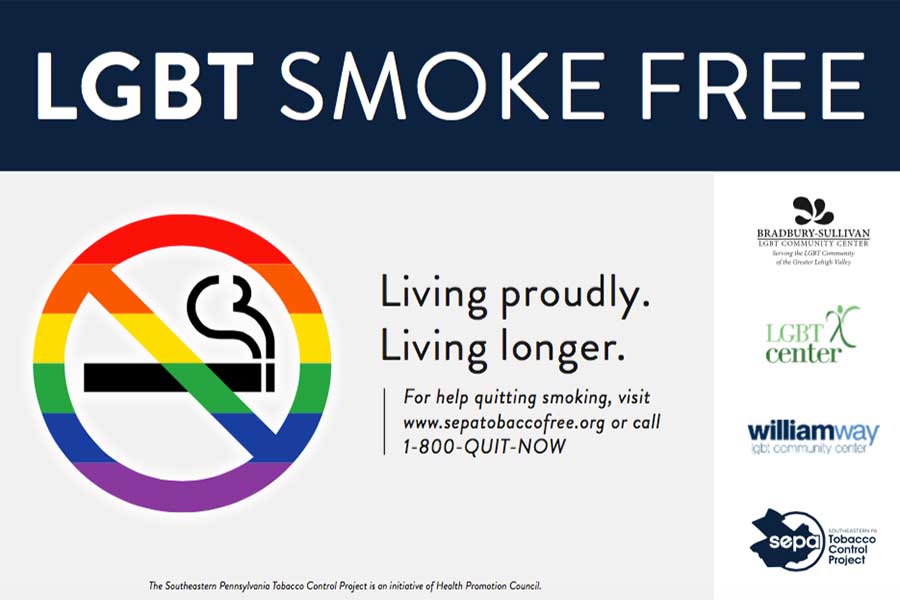“Whenever someone yells, ‘Dude, that’s so gay,’ we’ll be there.”
“Freedom. to speak. to choose. to marry. to participate. to be. to disagree. to inhale. to believe. to love. to live. it’s all good.”
At first glance, these slogans seem to be from an LGBTQ organization or activist group. They seem to promote wellness, equality and safety for the queer community. They leave the reader wondering which organization offers these promises.
The truth is, these lines are copy from Lucky Strike and American Spirit cigarette print advertisements, the former of which ran in 2001 and the latter in 2005. These are just two examples of how the tobacco industry has targeted the LGBTQ community over the past 30 years.
We’ve all seen PSAs depicting “Big Tobacco” as the bad guy, and probably have no problem understanding how profit can motivate sales of an ethically dubious product. Perhaps fewer of us have thought about how we have been directly affected as the subjects of these targeted marketing campaigns.
Statistically, one in four LGBTQ adults smokes compared with one in six straight adults. An estimated 30,000 LGBTQ people die of smoking-related causes in the U.S. every year. The tobacco industry’s efforts to target the LGBTQ community are working, and they continue to invest in attracting our youth to their products.
In the 1990s, the tobacco industry launched Project SCUM (Subculture Urban Marketing) specifically to target the homeless and gay populations of San Francisco. They sought to capitalize on the stress and perceived vulnerability of our community. As a result, the number of smokers in the queer community skyrocketed, and today people are more likely to die of smoking-related illnesses than car crashes, drugs, guns, and HIV.
Back in June, I had the opportunity to testify in front of Philadelphia’s City Council against proposed Bill 180522, which would have repealed established protections against tobacco marketing. Just last week, City Council voted to uphold the protections and prevent more tobacco marketing to reach into our communities. We know LGBTQ youth smoke at higher rates and are targeted by tobacco companies. Protections like these help limit the influence of marketing on our next generation.
The LGBTQ community is resilient, diverse and strong. We can stand up to the influence of the tobacco industry by pushing back on their reach into our most vulnerable communities. We can help each other break free of addiction by sharing the free Quit Line, 1-800-Quit-Now, for access to free counseling, and tools like patches, gum and medication.
Just being in the Gayborhood, we see the influence of tobacco products in the LGBTQ community. For too long, we’ve allowed these corporate entities to dictate our health. It’s time we follow in the footsteps of cities like San Francisco, Las Vegas and even our neighbor New Hope, and make our Pride festivals smoke free.
Next time you see an advertisement for cigarettes or tobacco products, remember the billions of dollars invested into getting you interested, addicted and dependent on something that kills 30,000 members of our community every year. We are stronger than an industry that sees our health as expendable and our youth as future addicts.
William Way’s Wellness Coordinator Arielle Catron develops smoking cessation, anti-violence and stress- reduction programs for the center. For more information on how to quit tobacco products, please visit www.smokefreephilly.org, www.thisfreelife.org or call 1-800-Quit-Now.
